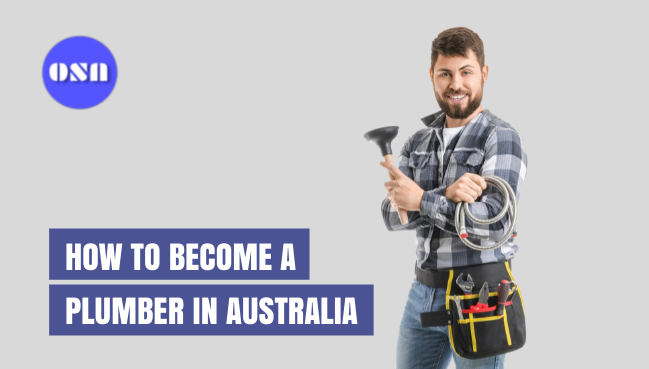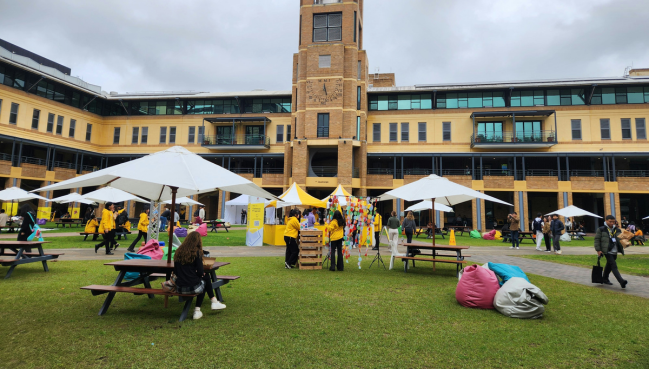How to become a Plumber in Australia with Salary Guide

Are you handy with tools? Do you have maintenance skills like installing heaters, drains and even high-facility equipment? Regardless of getting your hands dirty?
If yes, then starting a career as a Plumber would be perfect for you.
In this blog, you will discover all the vital information you need on how to become a plumber in Australia.
Overview of the plumbing industry in Australia
Plumbing is an important occupation in Australia. Now and then, homes and general individuals need the services of plumbers for installations and general home maintenance.
Services like water heater installation and fixing, low water pressure, leaky pipes replacement, drainage blocks, and more are everyday issues that need addressing in homes.
There is a projected increase in demand for these professionals in the coming years.
Size of the industry
As per the labour market insight website, there are 98,000 plumbers in the Australian workforce now.
Projected statistics show an increasing growth of about 8.6% by 2026, making it a career path on which you can start your career.
Popular Locations
About 41% of plumbers in the workforce live outside capital cities.
Victoria and New South Wales have a large share of employers of plumbers in Australia.
Here below is the percentage of plumbers in different areas of Australia by state and territory:
- Victoria 32.0%
- New South Wales 29.0%
- Queensland 17.7%
- Western Australia 10.9%
- South Australia 6.3%
- Tasmania 1.7%
- Australian Capital Territory 1.4%
- Northern Territory 1.0%
This is why it is necessary to consider a potential career path when selecting a city to study. Click here to find out how to choose a city to study in Australia.
Industries where plumbers are needed
The Construction industry employs a whopping 91% of the entire plumbing workforce, which is the largest share of all their employers. The construction industry offers services such as:
- Construction of apartment buildings
- Revitalisation of old buildings and structures
- Establishing civil projects
- Planning, facilitating and monitoring construction projects from start to finish.
Other industries account for the remaining 9% of the plumbers’ population. The industries include:
- Other industries 4.1%
- Public Administration and Safety 2.0%
- Electricity, Water, Gas and Waste services 1.5%
- Other services 1.4%
Hours of work
In Australia, around 85% of employed plumbers work full-time hours in all their jobs.
Full-time plumbers work an average of 44 hours per week in their primary job, the same as the working hours average for all jobs in Australia (44 hours per week).
About one-third of all plumbers work overtime hours on their job (paid or unpaid).
Age
The average age of a plumber is 33 years, which is lower than the all-jobs average of 40 years.
A large share of workers (28.2%) are within the age bracket of (25 to 34) years.
Gender
With over 98,000 plumbers in Australia, women account for only 1% of the entire workforce, while men account for 99%.
This is 47% below the all-jobs average (48%) for women and 51% above the all-jobs average for men.
What are some of the skills required to become a plumber in Australia?
Here are some essential skills you must have to be a qualified plumber in Australia:
- Problem-solving skills
- Handy skills
- Time management
- Mechanical and Technical design skills
- Communication skills
- Creative skills
- Must be disciplined and precise
- Must be able to work under pressure
- Adequate physical strength
Note that skills can be improved through training or experience.
What are the tasks and duties of a plumber in Australia?
Here are some of the tasks and duties performed by plumbers:
- Get proper knowledge and research aimed at properly tackling issues
- Design pipeline layout during construction
- Make use of heavy machinery and tools
- Install equipment like Dishwashers, Heaters, New pipes etc.
- Setting up central systems like heating and water.
- Preparing estimates and quotes for jobs
- Repairing pipe leaks
- Responding to flooding and drainage emergencies
How much do plumbers earn in Australia?
Plumbers’ earnings are very relative depending on specialisation, the industry they work in, skill set, experience and qualification.
On average, plumbers’ full-time earnings are $1,419 per week, which is much lower than the average pay ($1,593 per week).
The average hourly wage for plumbers is $35, which is lower than all jobs average pay ($41 per hour).

Essential steps on how to become a plumber in Australia
Let’s begin by talking about the entry requirements for plumbing courses in Australia.
To get an entry into a plumbing courses in Australia, you must:
- have completed a high school or year 12 equivalent.
- be at least 18 years of age (international students).
- IELTS score of 5.5 minimum overall (international students).
To practise legally as a plumber in Australia, you also need to get the required licences.
Here is a step-by-step procedure on how to become a plumber in Australia:
Step 1: Certificate III in Plumbing
The minimum qualification to become a plumber in Australia is Certificate III in Plumbing.
This can be completed as an apprenticeship program by domestic students for the duration of 4 years.
For international students, as they are not eligible for apprenticeships, they will need to complete this course in class with theoretical and practical knowledge. This course usually lasts around 1 year in duration.
The course fee ranges from $10,000 to $15,000 per year.
International students are usually expected to complete 360 hours of vocational work experience.
Step 2: Get Registered
A registered plumber, though obtaining a Certificate III and undergoing proper apprenticeship would still need to work under the supervision of a licensed plumber.
At this stage, you don’t have permission to issue compliance certificates yet.
Step 3: Certificate IV in Plumbing and Services
If you want to become a fully licensed plumber, then next stop for you will be Certificate IV in Plumbing and Services.
Completing this course empowers you with advanced knowledge and skills and you can start issuing compliance certificates as well.
The course is around 1 to 2 years full time study.
The course fee ranges from $15,000 to $20,000 per year.
Step 4: Get Licensed as a Plumber
Once you have completed your apprenticeship and chosen an area of specialisation, you need to get licensed.
Plumbing licensing differs from state to state and usually involves taking an exam and demonstrating your practical skills.
Once you pass the exam and met all the requirements, then you become licensed to work as a plumber. The exam cost is relative, depending on which state you are getting your licence.
Here are the requirements and fees needed to get a plumbing licence by state:
- Victoria
- New South Wales
- Queensland
- Western Australia
- South Australia
- Tasmania
- Australian Capital Territory
- Northern Territory
International students keen to apply for working in Australia as a plumber will have to undergo a Job Ready program.
Job ready program is an employment based skills assessment program which helps to demonstrate that you have skills and knowledge to work in your desired occupation in Australia.
The program is run by Trade Recognition Australia and involves various steps.
Step 5: Meeting all other requirements
These are some of the other requirements that must be met before you become eligible to work as a plumber in Australia:
- Having a white card or blue safety card
- Having a working with children check (some employers required)
- You own tool kit
What are some of the recommended institutions to study plumbing in Australia?
Here are some of the popular institutes to study plumbing courses in Australia:
- Australian Industrial Systems Institute (AISI)
- RMIT University
- Charles Darwin University
- The Gordon Institute of TAFE
- New South Wales TAFE
- Federation University Australia
- TAFE Melbourne
- TAFE Sydney
- South Australian TAFE
- Melbourne Polytechnic
Future growth of plumbing in Australia
As discussed earlier, there are approximately 98,000 plumbers currently working in Australia, and it is expected to grow by 8.6% or approximately 8,000 jobs through to 2026.
There are many job opportunities to work as a plumber in Australia, ranging from home maintenance to massive construction jobs.
If you have the required certification, experience and skills, you can even become a site supervisor in your specialty, a plumbing inspector or start your business.
In general observation, the plumbing occupation is a great choice to start a career path.
And this is everything you need to know about becoming a plumber in Australia. Let us know the next career you would like us to cover in the comment section below.


